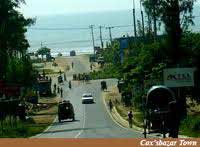Cox’sbazar: Seven Burmese nationals were arrested by Bangladesh border security forces on Monday when they were transporting Bangladesh sugar in a lorry with the intent to smuggle it to Burma, reported a local Bangladesh news agency.

The Daily Cox's Bazar, an online news agency, reported that Border Guard Bangladesh forces conducted an operation on a tip and arrested the seven Burmese and seized 50 bags of sugar on the Cox's Bazar - Teknaf Highway.
The seven Burmese nationals were transporting the 50 bags of sugar, worth about two lakh Taka, by a lorry from Chittagong to Teknaf. When they reached the Weak Chaung checkpoint on the Cox's Bazar - Teknaf Highway, the border officers intercepted the lorry and arrested them along with the smuggled sugar.
On the Burmese side, particularly in the border region of Maungdaw, the price of sugar is very high compared to other areas of Burma. Because of this, the smuggling syndicates smuggle Bangladesh-made sugar to Burma through many border points along the Naff River.
A resident of Maungdaw told Narinjara over the phone that Burmese people in the border area depend on smuggled sugar from Bangladesh because the amount of sugar entering the area from Burma proper is too low to meet local consumer demand.
At present, the price of sugar is 2,000 Kyat per viss in the western border town Maungdaw, but in the last month the price of sugar was only 1,000 Kyat per viss.
"The sugar from Bangladesh is not as good as the Burmese sugar but we use it because it is available everywhere in Maungdaw at a cheaper price," the resident said.
The western border of Burma is a populous area in Burma and the goods transported there from central Burma are inadequate to meet the demand in the market. Because of this, all kitchen goods like sugar, soybean oil, milk, and onion are smuggled from Bangladesh into Burma by local people.


